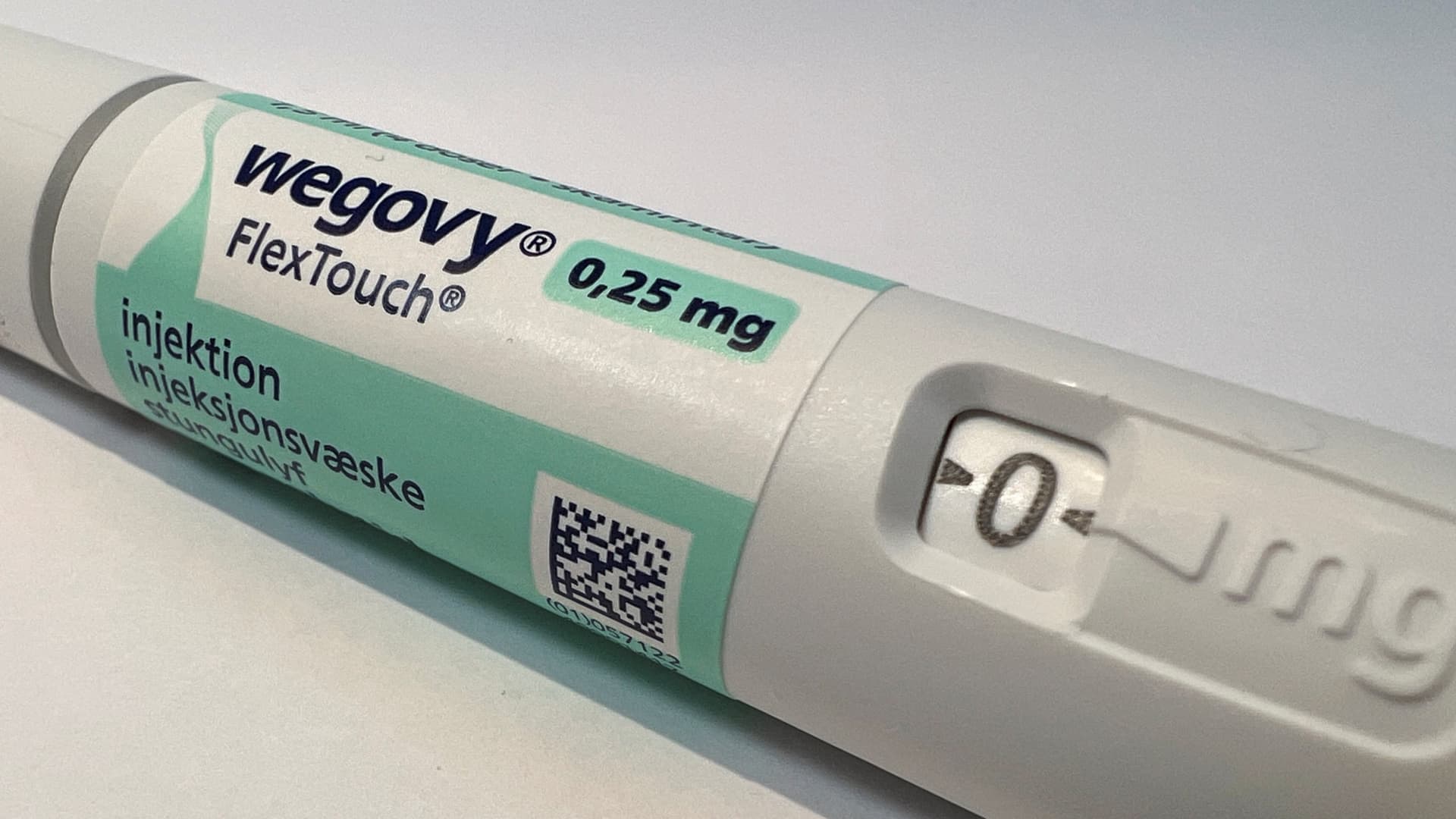Novo Nordisk on Thursday said it sued two compounding pharmacies in Florida for allegedly selling impure and “potentially unsafe” drugs claiming to contain semaglutide, the active ingredient in the drugmaker’s blockbuster weight loss treatment Wegovy and diabetes medication Ozempic.
The actions come as Novo Nordisk grapples with shortages of Wegovy and Ozempic in the U.S. as demand skyrockets for the drugs, which are known for their ability to cause significant weight loss.
That has left patients scrambling to find alternative, but sometimes dangerous and unproven, methods for shedding unwanted pounds.
Novo Nordisk is the sole patent holder of semaglutide and does not sell that ingredient to outside entities, which raises questions about what compounding pharmacies, clinics and other companies sell to patients. Compounding pharmacies prepare custom-made versions of commercially available treatments to meet the specific needs of a patient.
The Danish drugmaker found that all the products tested from Wells Pharmacy Network and Brooksville Pharmaceuticals were impure, meaning that they contained unknown and unauthorized substances other than semaglutide, according to the two lawsuits filed in federal court in Florida. One product’s level of unknown impurities was 33%.
The unknown impurities in the products “potentially pose safety risks” to consumers, including “possibly serious and life-threatening reactions,” Novo Nordisk said in the suits.
The Danish drugmaker is not seeking monetary damages but is asking the court to bar the pharmacies from selling their products.
Wells Pharmacy Network and Brooksville Pharmaceuticals did not immediately respond to CNBC’s requests for comment.
Novo Nordisk first sued Brooksville Pharmaceuticals over copycat versions of Wegovy and Ozempic in July. A federal judge in Florida dismissed the suit in October and later gave the drugmaker time to refile its complaint against the pharmacy.
Including the newest lawsuits, Novo Nordisk has filed 12 legal actions against compounding pharmacies, medical spas and weight loss clinics allegedly selling dupes of Wegovy and Ozempic. The company said it has received preliminary injunctions in six of those cases.
Rival Eli Lilly has taken similar action against businesses selling knockoffs of its popular diabetes drug Mounjaro, including its own lawsuit against Wells Pharmacy Network.
Novo Nordisk’s new suit against Wells Pharmacy Network claims that its products contained a substance called BPC-157, which was banned by the U.S. Food and Drug Administration in September. The FDA said it did not have enough data to know whether the substance was harmful to humans but noted it could cause dangerous immune system reactions.
Novo Nordisk added in the lawsuit that products from Brooksville Pharmaceuticals had lower levels of semaglutide than advertised. That puts patients “at risk of taking drug products that are less effective than expected based on their labeling,” according to Novo Nordisk.
“Compounded products do not have the same safety, quality and effectiveness assurances as FDA-approved drugs, and adulterated and misbranded injectable compounded drugs may expose patients to significant health risks,” Jason Brett, Novo Nordisk’s executive director of medical affairs, said in a statement.
The FDA in May warned about the safety risks of unauthorized versions of Ozempic and Wegovy after reports emerged of adverse health reactions to compounded versions of the drugs.
Several states have also threatened to take legal action against compounding pharmacies that make or distribute unapproved variations of Novo Nordisk’s weight loss treatments.
Don’t miss these stories from CNBC PRO:
- The S&P 500 is starting to form a ‘cup and handle’ pattern. How to watch for the potential breakout ahead
- Bank of America sees the S&P 500 rising to 5,000 next year, anticipates a ‘stock picker’s paradise’
- Morgan Stanley is bullish on this emerging AI trend — and names 6 stocks to play it
- These are Wall Street’s favorite Warren Buffett stocks
